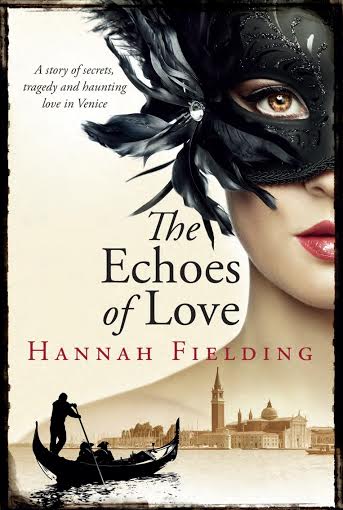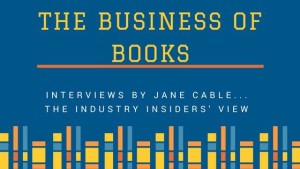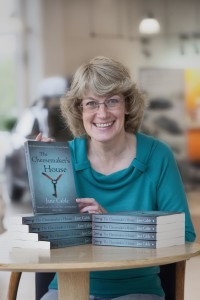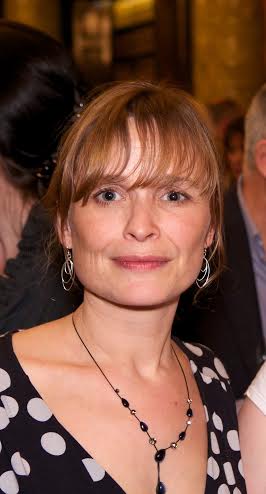We were very excited to interview The Echoes of Love: A Story of Secrets, Tragedy and Haunting Love in Venice
author Hannah Fielding. Hannah is a great writer and is very well travelled. Read on for her thoughts on her novel, getting published, her writing routine and her favourite places. 
Tell us about your novel
Seduction, passion and the chance for new love is at the heart of The Echoes of Love.
Set in the romantic and mysterious city of Venice, the beautiful landscape of Tuscany and the wild maquis of Sardinia, The Echoes of Love is a touching love story that unfolds at the turn of the new millennium.
What is your writing routine?
I have a very rigid routine which has served me well. Having researched my facts thoroughly, I plan my novel down to the smallest detail. Planning ahead, I have found, makes the writing so much easier and therefore so much more enjoyable. Then, when I am ready to begin writing, I settle into a regular routine – writing each morning andediting the previous day’s work, taking a break for lunch, writing a little more and then going for a walk somewhere inspirational, like the woods or the beach.
How hard was it to get published?
This only gets more difficult. As readers move from paperback to ebooks, publishers are developing new business models and nothing stays the same. My new publisher resulted from the very positive reception of my first book, Burning Embers, which was published by Omnific in the USA. Working with a London publisher and a younger team is very different, but just as enjoyable.
Why did you choose Venice as a setting for your novel?
I first visited Venice as a young child. Then, as now, I was wide-eyed and enchanted by the beauty of the city. I distinctly remember standing in the main square, the Piazza St Marco, gazing up at the stunning architecture of Saint Mark’s Basilica, and feeling I had somehow entered another world – a fairytale world. Then I looked down, at the square itself, which was overrun by hordes of pigeons. There was nothing beautiful about those birds. They were quite spoiling the place. And it struck me then that Venice is a city of two faces: that which the tourists flock to admire, that makes the city the capital of romance, that breathes new life into the imagination and leaves a permanent, inspirational impression. And the other side, the darker side, that which is concealed in what Erica Jong called ‘the city of mirrors, the city of mirages’.
When I returned to the city as an adult, I became quite fascinated by the concept of Venice – what it means to be Venetian; what the city really is beneath the layers of history and grandeur and legend. Frida Giannini wrote, ‘Venice never quite seemsreal, but rather an ornate film set suspended on the water.’ I understand this quote – there is something fairytale about the place, and with that comes some reluctance, perhaps, to see the realism beyond.
Venice so captured my imagination that I knew some day I would write a romance novel set in this most elegant and fascinating of cities. But it had to be the right story to fit the place. For me, that meant a story that reflected the two faces of Venice – the mask she wears, and the true form beneath.
Tell us about your characters
Venetia Aston-Montagu is a young architect in her mid-twenties who has already suffered heartbreak and loss. Brought up by a despotic father and a weak mother who always deferred to her husband, she can’t wait to leave home and work in Venicein her Italian godmother’s architectural practice. Her past experience has left her reserved and wary of men, but deep down she is a romantic who dreams of meeting the man of her dreams.
Paolo Barone is a millionaire Italian entrepreneur in his mid-thirties who has also had his share of suffering, which makes him at times taciturn. The affinity he feels for Venetia is instant. To start off with, like Venetia, he is afraid of the power of the emotions. Still, Paolo’s past and present are filled with secrets that he jealously keeps locked up in his heart, even from Venetia.
Is Venice the most romantic city?
Italy, for me, is the most romantic country in the world, and Venice is the best of its many ancient and beautiful cities. That is why time and again it tops the polls as the most romantic city in the world.
There are so many reasons I can give for this: the stunning architecture, the sense of history all around, the romantic music, the sublime cuisine, the colours of the buildings and their reflections in the water, the Casanova connection, the passionate
Venetians and their beautiful language, the dreamy drift of the lagoon, the blend of hubbub and calming serenity, the exciting Carnival, the gondolas that bear you around the city in such a timeless, gliding fashion…
You were born in Egypt and have travelled a lot. Where are your favourite
places?
1. Aswan, Egypt
One my favourite places in the world is the Old Cataract Hotel in Aswan in southern
Egypt. Built on a granite promontory in the Nubian Desert on the banks of the Nile,
the dark pink edifice, in the style of Belle Époque villas of the 19th century, has
retained all the beauty and splendour of yester-years.
2. The Rift Valley, Kenya
I set my debut novel, Burning Embers, in Kenya because after visiting the country
as a young woman I was captivated by the scenery and the people. The Rift Valley,
in particular, took my breath away, and I could not resist writing a balloon ride into
Burning Embers to allow my heroine, Coral, to take in the magnificent landscape.
3. St Paul de Vence
A beautiful hilltop village in Provence, and one of the oldest – founded in the ninth
century. It is known as Le Bijou de la Côte d’Azur (The Jewel of the Côte d’Azur).
The French painter Marc Chaga ll made the village his home for 20 years, and here he
ll made the village his home for 20 years, and here he
painted wonderfully warm pictures that pay homage to love, some of which can be
viewed at La Fondation Maeght , 623 Chemin des Gardettes.
Your first novel was published last year. Was this one harder to write?
Yes. Because Burning Embers had such a good response, I found The Echoes of
Love a much more challenging experience because I wanted to live up to my readers’ expectations.
What next?
I have written a trilogy set in Andalucía, Spain, spanning three generations of a
Spanish/English family, from 1950 to the present day.
Greece is also on the map for a new Hannah Fielding romance novel. I am now in the process of researching and planning a very dramatic love story that takes place on one of the many Greek Islands. I chose Greece because I know that captivating country and its people well – I have good Greek friends. I bought my wedding dress in Athens and my husband and I honeymooned on Rhodes Island. Greek mythology was part of the literature course I read at university and Greece is not far from Alexandria, where I grew up.





